|
Yesterday, Governor Henry McMaster and SC DHEC announced that the state will advance to Phase 1b of the state’s COVID-19 vaccination plan beginning Monday, March 8th. The approach is based on the state’s recognition that risk increases with age, certain medical conditions, and certain occupations. The state’s goal is to have vaccines for everyone who wants one by this summer. Beginning on Monday, March 8, the following groups will be allowed to begin making appointments:
WHAT IS A FRONTLINE WORKER?The big question is what is a frontline worker and does it apply to employees in the alcohol industry - whether it be someone in the kitchen, tasting room staff, production employees, warehouse employees, or someone in the office. The state has provided the following definition of people it deems to meet this classification:
The state has provided the following examples of people it believes would qualify as a frontline worker:
DO I, MY EMPLOYEES, OR TEAMMATES QUALIFY?As best we can tell, the state believes that the breakdown would look like this: Production Employees: 1b Tasting Room Employees/Bartenders: 1b Wait staff: 1b Retail Employees: 1b Kitchen Staff: 1b Delivery Drivers/Warehouse Workers: 1c Office Staff (outside of front desk): 1c WHO FALLS UNDER THE NEXT PHASES?The state currently intends for Phase 1c to begin on April 12th. At that time, eligibility will be extended to those aged 45+, essential workers, and those whose work in essential job categories defined by the CDC but were not included in Phase 1b, such as delivery drivers, non-front desk office staff, and warehouse employees. Phase 2 is expected to begin on May 3, 2021 where eligibility will expand to all South Carolinians aged 16+. HOW CAN AN APPOINTMENT BE MADE?Beginning on Monday, March 8th, online appointments can be made by using scdhec.gov/vaxlocator or you can call DHEC’s COVID-19 Vaccine Information Line at 1-866-365-8110 for help. HOW IS ELIGIBILITY DEMONSTRATED?When seeking vaccine services, people included in Phase 1b or 1c may show eligibility by showing an ID that includes their date of birth, verifying that they meet the criteria for a frontline or essential worker, or by verifying that they have an eligible high-risk medical condition. So, for our clients, we’d recommend providing a form or letterhead verifying employment and job responsibilities and a statement that the employee would qualify.
South Carolinians are urged to get vaccinated according to the state’s plan, and not to jump ahead of others. Please contact our office if you have any questions.
0 Comments
As Hurricane Dorian approaches the Carolina coast, we hope that everyone in the potential impact zone is working to get prepared. Being based in South Carolina, we are very concerned for many of our friends and clients as the storm approaches. While everyone’s list of things to do might vary, we just wanted to offer a few things to add to the checklist, particularly if you own an alcohol related business. So, before you throw that hurricane party, make sure you take care of the things listed below. PREPAREDNESS TIPS1. WATER. All of our producer clients in range of the storm should consider filling kegs and/or empty fermenters with water in case of a shortage. While the current track might a completely direct hit to the Lowcountry, things can change, and if this storm is as bad as expected, it is likely that electricity could be out for some time and that water service will be unreliable due to flooding. You might not be able to brew for a short time. Retailers and beer enthusiasts should consider filling empty growlers with fresh water. Many breweries and/or retailers might be offering fresh water in kegs and/or growlers, but plan ahead. 2. DOCUMENTS/BACKUP YOUR DATA. Businesses should gather important documents from the business and put them in a safe container and take them with you or at least put them in a secure location. If you can’t take the documents with you, then use plastic bags and duct tape. Put documents in at least gallon-size Ziploc bags. Duct tape all bags closed. Important documents can vary, but these would include licensing paperwork, insurance policies, tax returns, and contracts. Additionally, ensure that data is backed up and that any backup is performed in a timely manner and that any storage is done somewhere that is safe, secure, and dependable. 3. PHOTOGRAPHS. Take photos today or tomorrow of every room at the business (or home), every piece of electronics, and everything valuable, including documents. Upload the pictures to the cloud before the storm. Also make sure that your contacts are uploaded to the cloud. 4. INSURANCE. Review your business (or home) insurance policy to make sure you have coverage for any storm damage to the business. Remember, flood insurance isn’t covered under standard policies. Certainly, if you aren’t insured, then the bad news is that a policy can't be procured in the time needed. However, having knowledge of what your policy says can be beneficial in preparing for what you need to do and how you will need to proceed on a claim after the storm. 5. STORAGE. In terms of storing product, it is best to store it in a place above the ground in the case of flooding. Certainly, this might not be practical for keg storage. However, if you have shelving and can afford to move product or other merchandise off of a low area, then that would be beneficial. 6. PROTECTION. You can’t move your equipment, but you can prepare your building for potential flooding if you are in a flood plain. Local authorities should have information regarding sand bags. You’ll probably already know what your drainage situation is, but look into generators to operate certain pumps. This would be helpful in keeping the lower levels of a facility clear of flood waters. Boarding up of windows and other vulnerable apertures can protect the building from any high-speed debris that is flying during the storm. 7. PLANNING. In terms of making a true hurricane plan, please consult the authorities and experts and what is recommend for the aftermath. But, please start now if you haven’t. There are many great resources out there. Please remember that a hurricane is not the only threat to assess. You also should be concerned about tornadoes, fire, flooding, and looting. Part of this plan would include following meteorologists in your area regarding the latest information and forecasting. We happen to have one in our family who serves the Lowcountry and is currently also serving the Midlands, and so we would highly recommend Chrissy Kohler. 8. GOVERNMENT OFFICES. It is anticipated that SC state government offices in the Lowcountry are going to be closed for at least Tuesday of this week, and possibly more. Government offices may likely also be closed through Friday in coastal counties. If you need anything quickly from DOR, DHEC, or other government offices that you usually work with, it is best to move quickly. 9. COMMUNICATIONS STRATEGY. It should be kept in mind that normal functions could be interrupted by the storm and any flooding occurring after. Establish backup communications and have a plan to restore them. Some options would include cell phones, radio, and walkie-talkies. Identify a communications contact within your business who can communicate any necessary information to employees. 10. EMPLOYEES. If you’re located in a coastal county in South Carolina, then please note that the government has ordered an evacuation. Not everyone will heed this warning, and many will stay in the area - with many businesses staying open before and after the storm. Many employees will heed the warning and leave the impacted areas. Many jobs on the coast revolve around food and beverage, which means those jobs (for the most part) are going to be non-union private sector jobs. That means that employers have enormous flexibility when dealing with employees during a storm. Employees wishing to evacuate can be disciplined by employers for failing to show for work should the business stay open and the employer directs the employee to come to work. Of course, the likelihood of that for evacuating is low, often because it isn’t a good look for employers. But, this is more reason to communicate well with employees before and after the storm. Stay safe, everyone. BROOK BRISTOWBrook Bristow is a South Carolina-based lawyer at Bristow Beverage Law, who primarily counsels companies in the alcohol industry on business and employment laws, as well as on compliance, licensing, and intellectual property. You may reach him directly at [email protected]
As Hurricane Florence approaches the Carolina coast, we hope that everyone in the potential impact zone is working to get prepared. Being based in South Carolina, we are very concerned for many of our friends and clients as the storm approaches. While everyone’s list of things to do might vary, we just wanted to offer a few things to add to the checklist, particularly if you own an alcohol related business. PREPAREDNESS TIPS1. WATER. All of our producer clients in range of the storm should consider filling kegs and/or empty fermenters with water in case of a shortage. While the current track might miss the lower part of the Lowcountry, things can change, and if this storm is as bad as expected, it is likely that electricity will be out for some time and that water service will be unreliable. You probably won’t be able to brew for a short time. Retailers and beer enthusiasts should consider filling empty growlers with fresh water. Many breweries and/or retailers might be offering fresh water in kegs and/or growlers, but plan ahead. 2. DOCUMENTS. Businesses should gather important documents from the business and put them in a safe container and take them with you or at least put them in a secure location. If you can’t take the documents with you, then use plastic bags and duct tape. Put documents in at least gallon-size Ziploc bags. Duct tape all bags closed. Important documents can vary, but these would include licensing paperwork, insurance policies, tax returns, and contracts. 3. PHOTOGRAPHS. Take photos today or tomorrow of every room at the business (or home), every piece of electronics, and everything valuable, including documents. Upload the pictures to the cloud before the storm. Also make sure that your contacts are uploaded to the cloud. 4. INSURANCE. Review your business (or home) insurance policy to make sure you have coverage for any storm damage to the business. Remember, flood insurance isn’t covered under standard policies. Certainly, if you aren’t insured, then the bad news is that a policy can't be procured in the time needed. However, having knowledge of what your policy says can be beneficial in preparing for what you need to do and how you will need to proceed on a claim after the storm. 5. STORAGE. In terms of storing product, it is best to store it in a place above the ground in the case of flooding. Certainly, this might not be practical for keg storage. However, if you have shelving and can afford to move product or other merchandise off of a low area, then that would be beneficial. 6. PROTECTION. You can’t move your equipment, but you can prepare your building for potential flooding if you are in a flood plain. Local authorities should have information regarding sand bags. You’ll probably already know what your drainage situation is, but look into generators to operate certain pumps. 7. PLANNING. In terms of making a true hurricane plan, please consult the authorities and experts and what is recommend for the aftermath. But, please start now if you haven’t. There are many great resources out there. Please remember that a hurricane is not the only threat to assess. You also should be concerned about tornadoes, fire, flooding, and looting. 8. GOVERNMENT OFFICES. It is anticipated that SC state government offices are going to be closed for at least Tuesday of this week, and possibly more. Government offices may likely also be closed through Friday in coastal counties. If you need anything quickly from DOR, DHEC, or other government offices that you usually work with, it is best to move quickly. 9. LOCAL METEOROLOGISTS. Follow meteorologists in you area regarding the latest information and forecasting. For the Lowcountry specifically, we would highly recommend Chrissy Kohler, Rob Fowler Storm Team 2, Josh Marthers, and Arielle Whooley. Stay safe, everyone. BROOK BRISTOWBrook Bristow is a South Carolina-based lawyer at Bristow Beverage Law, who primarily counsels companies in the alcohol industry on business and employment laws, as well as on compliance, licensing, and intellectual property. You may reach him directly at [email protected]
DISCLAIMER: This post does not constitute legal advice. It merely sums up changes in the alcohol beverage laws to assist businesses in planning for the changes. If you have questions, then please speak to your legal professional. Some of the most common questions I get are about the new nonprofit donation law. If you’ll remember in the last few years, THIS happened. Well, thanks to a coalition of the beer industry (including the SC Brewers Guild and SC Wholesalers Association), the hospitality industry, and others, Senate Bill 114 became law in May of 2017. Although, it didn’t actually go into effect until the end of November. So, what does it mean and how can you as a producer or nonprofit get in on it? That’s what I want to get into today. BACKGROUND Ok, so you’ll recall that before this law, we had a crackdown on donations in 2016 and 2017. Producers could not provide people, equipment, or product. Nonprofits were classified as retailers, the same as would be a liquor store. And so, nonprofits had to purchase alcohol for their events, which created some real problems for many of them. The reasoning for that is because the law didn’t specifically provide for a distinction between nonprofit events and regular special events. Remember, South Carolina is a fairly strict three-tier system state, so producers couldn’t give anything to any retailer without being in violation of that regulatory scheme. Need a three-tier refresher? Very simply, it’s the way that alcohol gets from a producer to a consumer. The three tiers are the producer tier, the wholesale tier, and the retail tier. In practice, here is how it works – a producer makes alcohol and then sells it to a wholesaler. The wholesaler then picks up the alcohol, stores it at their facility, and then sells it and delivers it to a retailer when an order is received. The retailer then sells it to the consumer at the retailer’s place of business. In its purest form, producers can only sell to wholesalers, wholesalers can only sell to retailers, and retailers can only sell to consumers. There are exceptions of course, such as brewery taprooms. The system was adopted after Prohibition and was created to control consumption and to ensure taxes were paid on alcohol. South Carolina has carried the system for quite awhile, but the most recent incarnations of the laws that are on the books come from the 1990s. As a part of the law, producers were not allowed to provide any kind of alcohol or service to retailers, as it provided an incentive for the retailers to sell the producer’s products while potentially excluding others. This is what DOR was relying on when it made the determination that donations were no longer proper - that alcohol was being provided to free to the nonprofit (as a retailer). Again, if you want a complete reset and refresh on the background, then go check out the old blog which has a real deep dive into what went on. WHAT IS THE NEW LAW? Happy days are here again if you’re a nonprofit. A lot of money and funding for nonprofits come from various special events that are held throughout that year. And having to use operating funds on alcohol really hurt a lot of them. Now, the new law doesn’t do much for those that like to have monthly happy hours or regular events like that. But, it does give relief to those with bigger events that are held annually or quarterly. Let’s breakdown exactly what the new law does:
WHAT ELSE? With many laws that get passed, there are often winners and losers. For the most part, this law is a win for many. Producers win in that they now get to legally help out their favorite charities and causes, and those charities and causes win by not having to shell out a lot of their budget on alcohol for fundraising efforts. So, are there other winners and/or losers, or other quirks that need to be paid attention to?
HOW DOES IT WORK? It's pretty simple. 1. A South Carolina nonprofit organization applies for and is granted a nonprofit special event permit. 2. The nonprofit then (or prior to getting the license) informs the producers and/or wholesalers that it wishes to solicit for the special event. Now, keep in mind that either producers or wholesalers can donate alcohol. So, the nonprofit could approach either. 3. The nonprofit presents the nonprofit special event permit to the producer and/or wholesaler. 4. Whether it is wholesaler or producer donated, the wholesaler will transfer the donation to the nonprofit organization at the location that is licensed for the event, or the nonprofit can pickup the donation from the wholesaler up to 3 days before the event. 5. The wholesaler reports the donation and pays the excise tax on the product. (Typically, a producer will reimburse the wholesaler for the tax if the producer is going to donate.) 6. The wholesaler will give the nonprofit organization an invoice for the product. The nonprofit needs to keep this invoice at the event and have it for review just in case it is requested. The invoice will be for zero dollars and then the wholesaler would then invoice the donating producer for the excise tax that it paid or in the case where the wholesaler had already purchased the alcohol from the producer, it would invoice the producer for that amount and the tax. If a wholesaler just donated on its own, then it would just pay the excise tax. 7. The nonprofit holds the special event with the donated alcohol. All in all, it's a good law that will benefit a lot of great causes. If anyone has any questions, feel free to reach out. BROOK BRISTOWBrook Bristow is a South Carolina-based lawyer at Bristow Beverage Law, who primarily counsels companies in the alcohol industry on business and employment laws, as well as on compliance, licensing, and intellectual property. You may reach him directly at [email protected]
DISCLAIMER: This post does not constitute tax advice. It merely sums up changes in the alcohol beverage excise tax laws to assist businesses in planning for the changes. Excise tax for each company must be calculated upon numerous issues. If you have questions, please speak to your tax professional. And if you have any operational questions about how this affects your business, please contact BBL. Happy New Year! One of my goals for 2018 is to blog regularly instead of just a few times a year. Hopefully, you’ll find some of the information useful. Today, I’ll talk about the new federal excise tax cut for alcohol producers. Next time, I’ll address the new nonprofit donations law in South Carolina. So, let’s get going! You’ve probably seen something about this on the news wires lately. It’s hard to escape anything related to politics these days, and no matter where you fall on the political spectrum, the new tax law certainly sparked some conversation. So, what does it have to do with alcohol producers? Well, first let’s talk about the federal excise tax and what it is. What’s the federal excise tax? Excise taxes are narrowly based taxes on consumption, which are levied on specific kinds of goods, activities, and services. They are usually assessed on either units (think barrels of beer) or price percentage (think airline tickets). For alcohol, excise taxes are collected from either producers or wholesalers, and are usually passed on to the consumer in the price of the goods. Is that clear as mud? Ok, here is a Wikipedia article if you want to dig in a little more: https://en.wikipedia.org/wiki/Excise_tax_in_the_United_States Ok, how about this? Let’s talk only about producers since they are the ones affected mainly by the new law. So, when a producer - brewer, vintner, or distiller - manufactures alcohol, the federal government requires them to keep certain paperwork about the manufacture - It varies depending on what kind of alcohol you’re producing and how strong it is. But, when it comes down to it, the federal government wants to see how much alcohol you’re producing and selling, and then have you pay tax on it. So, if I make 30 barrels of beer and sell them all out of my taproom, then I’m required to report that in an operations filing, and then pay the federal excise tax on those 30 barrels. That report goes to a part of the government called the TTB - which stands for the Alcohol and Tobacco Tax and Trade Bureau. This is the part of the federal government that oversees the alcohol industry and regulates it. The tax goes where all taxes go - to Uncle Sam. What is the new law? The new tax law (the Tax Cuts and Jobs Act of 2017) that was signed on December 22, 2017, incorporated a bill called the Craft Beverage Modernization & Tax Reform Act. If you follow me on social media, this is the bill that I go to Washington, D.C. every year to advocate for - as to many in the beverage industry. This legislation has been championed by the Brewers Association and many other trade associations (including those for wine and spirits) for quite a few years. In fact, in some form, BA has been pushing for this law change for about 10 years. Anyhow, the new law took effect on New Year’s Day. Because of the way the legislation had to be setup, the changes are only good for 2 years - meaning that they will sunset at the end of 2019. So, the law that was just on the books as of a few days ago will return again in 2020 unless it becomes permanent. And there is that chance, but who knows? Yes, but what does the new law do?! Ok. Here’s what it does. The law dramatically lowers the tax rate on alcohol. So, your favorite kinds of alcohol get taxed in different ways. To get specific: Beer: Beer gets taxed at a standard rate on the number of barrels produced by a brewery. And just so we’re clear, a barrel is about 31 gallons beer. The federal excise tax on beer is reduced to $3.50/barrel (from $7/barrel) on the first 60,000 barrels for domestic brewers producing less than 2 million barrels annually. For those over that amount, the tax is reduced from $18/barrel to $16/barrel on the first 6 million barrels. To be clear, every brewery in South Carolina falls into the first category and will have their taxes cut in half. Spirits: Spirits get taxed at a standard rate per “proof gallon” produced. What’s a proof gallon? That’s a spirit that is 50% ABV. Rates get adjusted if you’re over or under that number. So, if you’re less than 50% ABV, then you get taxed less, and if you’re over 50% ABV, then you get taxed more. So, the tax rate for distilled spirits is reduced from $13.50 a proof gallon to $2.70 on the first 100,000 gallons removed during each calendar year, and to $13.34 on additional gallons up to 22,130,000. For perspective, let’s say a distiller only does 750s. Typically, a case of that would have 12 bottles, and that would equal about 2.3 gallons per case. So, most likely, all South Carolina distilleries would fall into the first category. Wine: Wineries get taxed at a standard rate per gallon of wine, but it’s done based on a scale of rates which vary depending on ABV and the type of wine produced. And of course, for vintners, the reductions vary depending on the number of gallons produced and the ABV. It’s actually the first reduction in excise taxes on wine in 80 years. All vintners will get a tax credit between $0.53 and $1.00 per gallon on the first 750,000 gallons. For the first time, sparkling wine is eligible to get that tax credit. Cider producers will also be able to get a proportionate tax credit. Other changes will include changing the way wines with 14% to 16% ABV are currently taxed - to $1.07 per gallon. Wines between 16% and 21% ABV are taxed at $3.57 per gallon. Ok, enough math. The best thing to say right now is that with the change, any alcohol producer should be assessing their operations to get the most out of this current temporary tax cut over the next two years. There is no guarantee that this will become permanent, nor that alcohol will be cheaper. BROOK BRISTOW Brook Bristow is a South Carolina-based lawyer at Bristow Beverage Law, who primarily counsels companies in the alcohol industry on business and employment laws, as well as on compliance, licensing, and intellectual property. You may reach him directly at [email protected]
As Hurricane Irma approaches the Southeastern United States, we hope that everyone in the potential impact zone is working to get prepared. Being based in South Carolina, we are very concerned for many of our friends and clients as the storm approaches. While everyone’s list of things to do might vary, we just wanted to offer a few things to add to the checklist, particularly if you own an alcohol related business. PREPAREDNESS TIPS1. All of our producer clients in range of the storm should consider filling kegs and/or empty fermenters with water in case of a shortage. If this storm is as bad as expected, it is likely that electricity will be out for some time and that water service will be unreliable. You probably won’t be able to brew for a short time. Retailers and beer enthusiasts should consider filling empty growlers with fresh water. Many breweries and/or retailers might be offering fresh water in kegs and/or growlers, but plan ahead. 2. Businesses should gather important documents from the business and put them in a safe container and taking them with you or at least put them in a secure location. If you can’t take the documents with you, then use plastic bags and duct tape. Put documents in at least gallon-size Ziploc bags. Duct tape all bags closed. Important documents can vary, but these would include licensing paperwork, insurance policies, tax returns, and contracts. 3. Take photos today or tomorrow of every room at the business (or home), every piece of electronics, and everything valuable, including documents. Upload the pictures to the cloud before the storm. Also make sure that your contacts are uploaded to the cloud. 4. Review your business (or home) insurance policy to make sure you have coverage for any storm damage to the business. Remember, flood insurance isn’t covered under standard policies. Certainly, if you aren’t insured, then the bad news is that a policy can't be procured in the time needed. However, having knowledge of what your policy says can be beneficial in preparing for what you need to do and how you will need to proceed on a claim after the storm. 5. In terms of storing product, it is best to store it in a place above the ground in the case of flooding. Certainly, this might not be practical for keg storage. However, if you have shelving and can afford to move product or other merchandise off of a low area, then that would be beneficial. 6. You can’t move your equipment, but you can prepare your building for potential flooding if you are in a flood plain. Local authorities should have information regarding sand bags. You’ll probably already know what your drainage situation is, but look into generators to operate certain pumps. 7. In terms of making a true hurricane plan, please consult the authorities and experts and what is recommend for the aftermath. But, please start now if you haven’t. There are many great resources out there. 8. It is anticipated that state government offices are going to be closed for at least Monday and Tuesday of next week. Government offices may likely also be closed on Friday in coastal counties. If you need anything quickly from DOR, DHEC, or other government offices that you usually work with, it is best to move quickly. 9. Follow meteorologists in you area regarding the latest information and forecasting. For the lowcountry specifically, we would highly recommend Chrissy Kohler, Rob Fowler Storm Team 2, Josh Marthers, The Weather Channel, and Bryan Norcross. Stay safe, everyone. BROOK BRISTOWBrook Bristow is a South Carolina-based lawyer at Bristow Beverage Law, who primarily counsels companies in the alcohol industry on business and employment laws, as well as on compliance, licensing, and intellectual property. You may reach him directly at [email protected]
Recently, you might have heard the news that the South Carolina General Assembly is taking up some new legislation regarding modernization of beer laws. The first being the much discussed nonprofit donation bill - which has been discussed in many newspapers and also broken down previously by BBL here. Certainly, that bill should have no issue getting through to passage, but, you should still call your Senator and Representative about it. The bill number is S. 114 and has the support of numerous nonprofits, SCANPO, the SC Brewers Guild, and the SC Beer Wholesalers Association. You can read it here. In a nutshell, it will allow producers (brewery, winery, and distillery) to make donations to nonprofit organizations who have special event permits. We can get into the details of it later in a future post once it passes. The bottom line: it’s a good thing and will restore order to a roller coaster of a last year in how special events were handled in South Carolina. The second bill that hasn’t gotten as much attention is what is being labeled as the “Brewpub Bill” or the “Hunter Gatherer Bill.” That’s what we’ll get into today. The bill number is S. 275 and can be read here. BACKGROUND A long time ago in a galaxy far away, I wrote a few introductory pieces on certain aspects of South Carolina beer laws. They mostly dealt with brewery and brewpub laws. For purposes of this discussion, let’s get a refresher on the brewpub laws of South Carolina, which can be found here (keeping in mind that some of the information might be dated). No time to read? No worries. Here is the Cliffs Notes version. South Carolina brewpubs can do the following things:
South Carolina brewpubs can’t do the following things:
Time and time again, the biggest complaint I hear from brewpub clients is about the inability to sell their beer beyond their four walls - mainly to a wholesaler to distribute for you to buy from retailers or to serve beer at a festival to promote themselves. These have consistently been the biggest complaints since the explosion of craft beer began. The current crop of South Carolina brewpub laws came to be in the mid-1990s. At that time, craft beer wasn't really a thing. Palmetto Brewery had just become the state’s first post-Prohibition brewery in 1993. Soon after in 1995 and 1996, Hunter Gatherer in Columbia and Southend Brewery in Charleston followed by opening their doors as brewpubs. The laws that allowed those operations to open are still the laws that brewpubs are governed by today. And for the most part, it was a pretty good deal for brewpubs. Even to date, we count about 15 brewpubs open statewide - with probably about 8 of those opening in the last 3-4 years despite all of the changes in brewery laws. WHY HAVE A BREWPUB? But why would you open a brewpub when all of the brewery laws are getting so much better? Ah, that is the question. Without the right of distribution like a brewery would have, there really are only a few reasons to open a brewpub: 1. Liquor sales. Breweries can’t sell liquor, even with the new allowance for food sales under the Stone Law like a restaurant would be able to do. Liquor is big business. And of the projected $9.4 billion of sales that South Carolina restaurants will do this year, a nice chunk of that belongs to the sales of spirits. Many brewpubs have not wanted to be breweries because this is a good slice of their business. 2. No sales limits. Brewpubs also don’t have to deal with the arbitrary sales limits that are set on breweries. The 2010 Tour and Taste Law is still on the books in some respects, and limits the state’s breweries to selling up to 288 ounces of beer per person per day to go - effectively, a case limit. Interestingly, just a week ago, Georgia adopted a similar measure. Alabama had adopted it in 2016. And for the first time, this year, Mississippi altered its beer laws to allow 576 ounces of beer per person per day - two cases worth. So, it might be time to revisit the case limit law as other Southern states are catching up and when other states such as North Carolina and Virginia have no such cap. But all that be as it may, brewpubs don’t have these problems. They can sell any amount to go. They can sell any amount to you for on-site consumption so long as it is done so responsibly. Breweries still have a distinction made between Pint Law breweries - those without food operations that are able to sell 48 ounces of beer per day per person for on-site consumption - and Stone Law breweries - those with food operations that have no limit for on-site consumption so long as it is sold responsibly. So, to an extent, a brewpub doesn’t have to worry about limits on sales. If it can get people to the space to buy enough beer, then there’s no need to worry about outside sales. 3. Retail. The Department of Revenue considers brewpubs to be retailers in the three tier system due to its retail sales of beer, wine, and spirits - much of which (other than their own) is bought from a wholesaler. Although, in essence, a brewpub is a hybrid creation of a manufacturer and a retailer as like a brewery, beer would be produced on-site. Many states consider brewpubs to be exceptions to the three-tier system as that hybrid. But, recently, DOR has indicated it does not agree with those assessments. So, for owners of brewpubs, they have an opportunity to own other retailers like bottle shops or restaurants. Owners of wholesalers or breweries would not be able to do so as they are squarely within their own tiers. Does any of this make sense yet? It is a bit convoluted. But it will all make sense in a minute. THE HUNTER GATHERER CASE So, this hasn’t been reported or really covered anywhere, but is public record so you can go read it all for yourself. As you know, Columbia’s Hunter Gatherer is a legendary brewpub that has been open since the beginning of the state’s brewpub laws in the mid-1990s. You might have heard in the media that the brewpub was working to open a production brewery in an old airplane hanger. What you didn't hear is that it hasn’t been the easiest road to get there. Without diving too much into the details of the case, here are the basics: HG wanted to open a production brewery. Under the Stone Law which was passed in 2014, South Carolina breweries can have no limit to on-site sales if they have a food operation that is approved by DHEC. They can also buy other beer and wine from a wholesaler to sell to patrons. This all requires a separate license from the instate brewery license. Since that was already a big part of its business, HG decided to build a larger brewery to expand. It still intended to keep its brewpub downtown. It applied to DOR for those permits that it would need to operate. DOR denied those permits and claimed that in opening a new brewery, HG would be violating the state’s three tier laws which prohibited a retailer/brewpub from also operating in another tier - in this case, the manufacturing tier. This was the first time that DOR really went on the record to say that brewpubs were considered retailers. And like we discussed, if a brewpub is indeed a retailer, then it couldn’t own anything in another tier. HG appealed the decision to the administrative court, claiming that it wasn’t a retailer, but was instead that hybrid retail/manufacturing model that was outside of the three tier laws of South Carolina and therefore, an exception. Well, the administrative judge agreed and reversed the decision of DOR. Not wanting that precedent to stand, DOR appealed the decision to the South Carolina Court of Appeals, which is where the case is today. The case has been completely briefed by the parties and ready for the court’s consideration. How will the court decide the case? It’s hard to say. But, overturning an administrative decision isn't the easiest thing to do. In fact, an administrative judge’s decision in South Carolina isn’t to be overturned unless the decision is not supported by substantial evidence or controlled by some error of law. In other words, HG’s chances are probably pretty good. However, DOR could always appeal that decision to the South Carolina Supreme Court, which would then hold up progress for another year or so. But while all this was going on, a new piece of legislation was being discussed in a joint effort between wholesalers and brewers - that being the brewpub bill, which could fix the issues that HG (and potentially others) would be facing. Let’s get into it. WHAT THE BILL DOES The long and short of the bill is that it does give brewpubs the rights of a brewery (including distribution, festival attendance, etc). - by turning them into a brewery. No, seriously. If the bill is passed, a brewpub would be able to apply to DOR immediately for a brewery permit. But, why would they want to do that when they can already do that now and when a brewpub already has the advantages that we discussed? Well, hang on. The bill also gives existing breweries that have the additional licenses allowed by the Stone Law (DHEC, on-premise) to now apply for liquor licenses with their restaurant operations. See where this is going? So, a brewpub could really still function as they always did since they would be able to keep their liquor permits. Only now, they would be able to sell beer to a wholesaler for distribution or attend a festival. But, of course, they would also then be subject to all of the other brewery laws such as the case limit to go, etc. It could be a hard decision for a brewpub owner, but for the first time, it would at least give them the realistic option. The bill also codifies DOR’s interpretation that brewpubs are retailers. Some additional requirements would be that for the first time (if they decided to go for the liquor permit), breweries would have to keep their accounting books separate between the brewery and the restaurant operation with the beer, wine, liquor, and food sales. It would also require that the brewery put up a physical partition between the brewing operations and the restaurant side of things. Now, most breweries have some sort of separation whether its a chain, some barrels, a wall, or a fence. But this would actually mandate a divider so that the general public could not freely enter the brewing operation. The federal government actually also imposes this requirement, so it isn’t something new. WHAT THE BILL DOESN’T DO So, this seems like a pretty good deal, right? Brewpubs get to finally have distribution of their beers while still keeping the things that made them profitable to begin with. Although, they are losing one thing in that at least for the moment, they won’t be able to sell unlimited quantities of their beers to go - not that anyone was necessarily doing so. They will be limited by the brewery limit of 288 ounces per person per day to go. But, what else are we missing here? Well, like we said earlier - brewpubs are to now officially be declared as retailers. But, they aren’t necessarily going to be given all of the rights that come with being a retailer - at least in how the alcohol code reads. For example, if you wanted to purchase a keg for an event, you’d have to go to a retail store to arrange for that, right? However, as to brewpubs, the law only says that beer can be sold - (a) on draft; (b) to go in a “sanitary container” brought by the consumer and filled at the tap (so, arguably, a growler and not kegs); and (c) in bottles (and arguably cans or crowlers). The bill doesn’t fix that language to make the brewpub act like a true retailer. The bill also doesn’t change the prohibition on shipping beer like a retailer can sometimes do. So, it might not be a slam dunk for all brewpub owners when making these choices. Another issue for those brewpub owners - this bill doesn’t help all of them. Like we mentioned earlier, DOR wants to treat brewpubs as retailers. As such, the owners of brewpubs can also own other retailers. But, if they wanted to bring themselves under the new law (if passed), they would then all of a sudden be a manufacturer. And as we discussed, they can’t have it all. So, for those owners that also own other retailers, they’d either have to sell those off to become a brewery or just keep on keeping on. CONCLUSION So, that’s the brewpub bill. If passed, it would dramatically change the game for existing brewpubs. It could also have the effect of chilling brewpub applications when an entity wanting to open could just go the brewery route (especially if the 288 ounce cap is eventually lifted). For breweries that are already open or thinking of opening, it provides yet another revenue stream through liquor sales. And certainly, like with the Stone Law, breweries will have to choose whether to go that route or not. Selling liquor provides its own set of issues, including server training and higher insurance premiums, but there would be the benefit of additional revenue to grow the business, and for consumers, another option available for consumption. Will it pass? Count on it. In fact, it has already passed the Senate by a 37-1 vote. The bill is now before the House and will be assigned to their Judiciary Committee for examination and possible amendment before going to the floor for a vote. Could anything be changed during the process? Hard to say. Amendments are always possible and regularly done. But, certainly, any amendment to include the other brewpubs that have owners with other retail interests would really take some tinkering with the state’s three tier laws, so it is probably unlikely. Perhaps there could also be some work done on the existing brewpub laws for those that will remain brewpubs and hereafter, retailers - such as keg sales and maybe an increase in the annual 2,000 barrel production limit to something slightly higher, which was attempted several years ago. Those that remain brewpubs will also get a benefit from the nonprofit bill that was discussed above - for the first time, they’ll be able to attend festivals and charity events and have their beers be featured. As always, we'll watch and see what happens. BROOK BRISTOW Brook Bristow is a South Carolina-based lawyer at Bristow Beverage Law, who primarily counsels companies in the alcohol industry on business and employment laws, as well as on compliance, licensing, and intellectual property. You may reach him directly at [email protected] or [email protected]
Hello, all. It’s been awhile since I’ve posted, so forgive the absence (and this will be cross-posted on the new law firm website and vice versa on beerofsc.com. This seemed as appropriate a time as any to get going again since the phone won’t stop ringing about this special event/nonprofit issue that you might have heard about. To make a long story short in the introduction (before we get too lawyerly), here’s the deal - for many years, special events and nonprofit organizations (such as beer festivals, wine festivals, wine and food events, and tastings of XYZ city) have done things a certain way and have gotten used to it - that being the way that alcohol was both acquired by the special event (usually via donation from a producer or wholesaler) and then presented to the consumer at the event (by the producer). However, recently, SLED is attempting to enforce laws that have been on the books since the 1990s, but have only recently been paid attention to. These enforcements present many problematic issues for a lot of industry stakeholders. THE BACKGROUND Really quickly so we can get to the other issues - let’s talk about the backdrop here - the three-tier system (which could be worthy of its own blog post explaining it all). You’ve probably heard the term before. It’s an easy way of referring to how alcohol gets to consumers within the system. The three tiers are the producer tier, the wholesale tier, and the retail tier. In practice, here is how it works - a producer makes alcohol and then sells it to a wholesaler. The wholesaler then picks up the alcohol, stores it at their facility, and then sells it and delivers it to a retailer when an order is received. The retailer then sells it to you the consumer when you come to the store. In its purest form, producers can only sell to wholesalers, wholesalers can only sell to retailers, and retailers can only sell to consumers. And there are certain exceptions that we can save for discussion for another day. This system was adopted after Prohibition and was created to control consumption and so as to avoid any issues with what are called tied houses, which we will talk about shortly. South Carolina has carried the system for quite awhile, but the most recent incarnations of the laws that are on the books come from the 1990s. THE SPECIAL EVENTS LAW So, what does this system have to do with special events and nonprofits? Aren’t those outside of the system? Well, actually no. They aren’t. They have only been treated that way. So, where is this special events law that we keep talking about? Where is it and what is DOR and SLED seeing in it? (Remember DOR interprets the laws and SLED enforces them). Let’s take a look. We’ve already briefly run down what the three-tier system is, so these are the sections which codify it - that is to say, where the law is actually the law. S.C. Code Ann. Section 61-4-735 for wine and S.C. Code Ann. Section 61-4-940 for beer. We’ll break down small parts of those sections. As to wine, the law reads: [with certain exceptions], a manufacturer of wine . . . must not sell, barter, exchange, transfer, or deliver for resale wine to a person not having a wholesale permit . . . [and] . . . a manufacturer of wine . . .must not furnish, give, rent, lend, or sell, directly or indirectly, to the holder of a retail permit any equipment, fixtures, free wine, or service. The beer law is basically the same: A manufacturer or brewer must not sell, barter, exchange, transfer, or deliver for resale beer to a person not having a wholesale permit . . . [and] . . . a manufacturer, brewer, importer, or wholesaler of beer . . . must not furnish, give, rent, lend, or sell, directly or indirectly, to the holder of a retail permit any equipment, fixtures, free beer, or service. Spirits are somewhat similar, so I’ll just lump them in as well without getting too bogged down. So, the law says pretty clearly that if you make alcohol, unless certain exceptions apply (which we won’t tackle today), then you have to sell to a wholesaler who will then sell and deliver it to the retailer, and as a producer, you cannot give any equipment, free booze, or service to a retailer. But, where are we reading all of this other stuff into the law? You’ll notice that the word “service” was included in those provisions. What does it mean? Well, there’s no definition in the code or regulations, so it could mean anything. But usually, when we don’t have words defined in the code, us lawyers typically give them their normal meaning. For lack of a better definition, we’ll just say that a service occurs when you do something for someone. What kinds of things would be services? Well, DOR says pouring beer or wine is a service. Providing a jockey box is a service. Perhaps even providing a tent could be a service. You get the idea. Most actions would probably fall under that broad definition. The only exception now being made is for the producers to stand near the pouring station and talk about their products in an effort to educate the consumer. But, that’s it. Could that also be considered a service? Arguably, yes. But DOR is saying that is fine, so there you go. But that doesn’t leave a lot for producers to do. Basically, the law wants them to sell their product and that’s it. The rest is up to the event. Now, why is the law written this way? A lot of people seem to think that these laws are favorable to wholesalers or somebody else. Well, actually that isn’t the case. These provisions are done as a preventative measure from producers influencing retailers. Before Prohibition, that was a big thing - something called Tied Houses, which if you’ve been to London, you’ve no doubt seen all the various pubs there. And those pubs are usually tied to a certain producer like Fuller’s, Samuel Smith, etc. South Carolina seeks to prevent that kind of situation by having independent retailers. And that’s a good thing. You wouldn’t want one the big global brands to provide a ton of free stuff to a particular retail account which could be exchanged for locking out all other brands. So, it’s beneficial to have in that respect. What about the argument that these laws favor wholesalers? Well, not really. The wholesale tier is independent. Yes, the law allows wholesalers to provide certain things of nominal value - gaskets, hoses, clamps, etc. But, really they are there to help producers sell beer and work with their retail accounts to present the beer appropriately. So, ok. We get that producers can’t do these things for traditional retailers. But what does that have to do with a special event or a nonprofit event? Well, that’s where we are where we are. Nonprofits and special events are declared by DOR to be treated as retailers. So, whether you are a for profit event or you’re a nonprofit putting on an event to raise money for medical research, environmental protection, or adopting puppies, then you’re going to be subject to the same laws as the for profit liquor store down the street. Seem fair? It probably isn’t in some ways, but in the eyes of the law, nonprofits are going to sell alcohol to get money, which puts them on the same playing field as everyone else. WHAT WILL BE CHANGING What then exactly will be changing about events (whether profit or nonprofit) going forward? Well, it depends. In the eyes of the law, these are the changes that should be made (or really, should have been happening all along). Regardless, assuming the event is operating within the law, here is what you can expect going forward:
WINNERS, LOSERS, & WHY NOW? Now, that we have a sufficient backdrop, the next questions most people will ask will probably be "if these laws have been on the books for nearly 20 years, why are they just now being enforced?" Another question might be "under this new enforcement regiment, who wins and who loses?" Well, in a sense, both questions can go together. The biggest winner in this situation is the state government. They are most likely ensuring that tax revenues are collected. And why now? In a time when craft alcohol is at an all-time high and with budgets being cut, the added revenue is especially important. As an example, the state's craft beer industry has grown from $250M to $450M in just the last few years. With the state's alcohol excise tax being some of the highest rates in the country ($0.77 per gallon on beer, $2.72 per gallon on spirits, and $0.90 per gallon on wine), the state can secure more revenue by eliminating donations (assuming that taxes were not always paid). If you were the state, you would do the same thing and not leave money on the table. And the law says what it says. If it is changed, then the government will adjust accordingly. They're also looking to educate alcohol industry members. Despite what some think, the government wants its industry members to be in compliance. And this is a big lesson for many to learn. Other winners? Well, bigger producers arguably win. Most special events focus on smaller producers whose products cost more to make. Financial pressures on organizers with small budgets could force a decision to purchase less expensive and desirable products or just the cancellation of events altogether. What about losers? Well, nonprofits have to be the biggest loser. Without a donation stream for events from producers and wholesalers, the need to pay for the products will fall on them. As alcohol isn't cheap, that means that a lot of events will need to sell a lot of tickets just to break even. That's a lot of pressure. Another loser would be just festivals and events (and festival goers) in general for similar reasons - not just in the high costs they will have to undergo, but also for the experience that they are able to offer festival goers. Now, certainly festival attendees won't care how products get there and what it costs. They care about the best bang for their buck. By losing some producers and the ability for producers to pour, the experience will be lessened. It is also lessened if an event's volunteers happen to go AWOL so they can enjoy the event when there are few volunteers and long lines. By adding expenses, ticket prices will go up, which might keep many at home - especially if the experience is not going to be as good. You can also expect that there will be less special events, whether nonprofit or for profit as the costs might be too high. Certainly, wholesalers and producers lose as well. Now, one could argue that both benefit in the sense that without donations, both can be paid for products. Maybe, but that's a bit of a crass way to look at the situation. Historically, both have been very locally focused and incredibly philanthropic and take pride in the causes that they support. Taking away that ability hurts everyone. Both also lose in that added regulation makes it more difficult to pull events off to begin with. Most people aren't aware of the behind the scenes work that goes on between the various parties to make an event happen. Adding extra steps will make things much more difficult and potentially lessen interest in participating. WHAT WILL PROBABLY HAPPEN As we speak, legislators are hearing from various nonprofits and event organizers from across the state. There is no question that a fix to the issues will be on a piece of legislation. Unfortunately, it isn’t an issue that can be addressed in the General Assembly’s special session. So, it will have to sit until January when the General Assembly reconvenes for the new session. Thus, for the next six months and probably more until the bill passes next year (assuming it does), folks will have to deal with it. The good news is that this is an issue that a big coalition of folks could come together on - various producers, wholesalers, event organizers, nonprofit organizations, hospitality industry members, and so on. So, support would most likely be broad. And that’s a great thing to have when any bill involving alcohol comes down the pipe. The other option is to just let the law stand and have nonprofits pay for alcohol. This is the way that other states operate. What will happen? Time will tell. Certainly, if this is an issue that you're concerned about, you can always contact your State Senator or Representative. If you don’t know who your legislators are, then you can use this tool: http://www.scstatehouse.gov/legislatorssearch.php - just keep in mind that several legislators might not be returning due to retirement or the outcome of recent elections. Several are even going through runoffs this week. So, keep on the lookout for those returns. CONCLUSION Certainly, the new enforcement protocols are going to affect a lot of people. It is true that there won’t be much impact on events that have been buying alcohol from the start. But for nonprofits used to donations, this is a game changer and potentially, a dire one. The blame shouldn’t be placed on producers as they are just wanting to do something for worthy causes. The blame shouldn’t be placed on SLED as they are just doing their job which is enforcing what the law says. The blame shouldn't be placed on wholesalers as the law is the law and they have to abide by it, and now, do more work because of it. The blame shouldn’t be put on DOR as their interpretation of the law isn’t completely without basis and you'd do the same thing if you were in their position. The blame should be put on both years of inconsistent enforcement of alcohol laws and on laws that are in big need of modernization to accommodate an evolving Palmetto State, and certainly, there are plenty of those laws in the South Carolina code in many industries that could use some help. BROOK BRISTOW Brook Bristow is a South Carolina-based lawyer at Bristow Beverage Law, who primarily counsels companies in the alcohol industry on business and employment laws, as well as on compliance, licensing, and intellectual property. He is the author and editor of the Beer of SC Blog. You may reach him directly at [email protected] or [email protected]
|
AuthorBrook Bristow is a South Carolina-based lawyer at Bristow Beverage Law, who primarily counsels companies in the alcohol industry on business and employment laws, as well as on compliance, licensing, & intellectual property. You may reach him directly at: [email protected] Archives
April 2024
Categories |




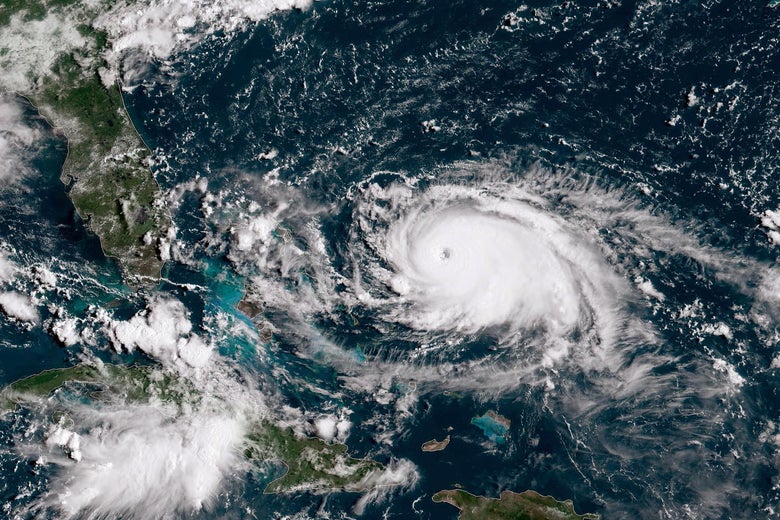
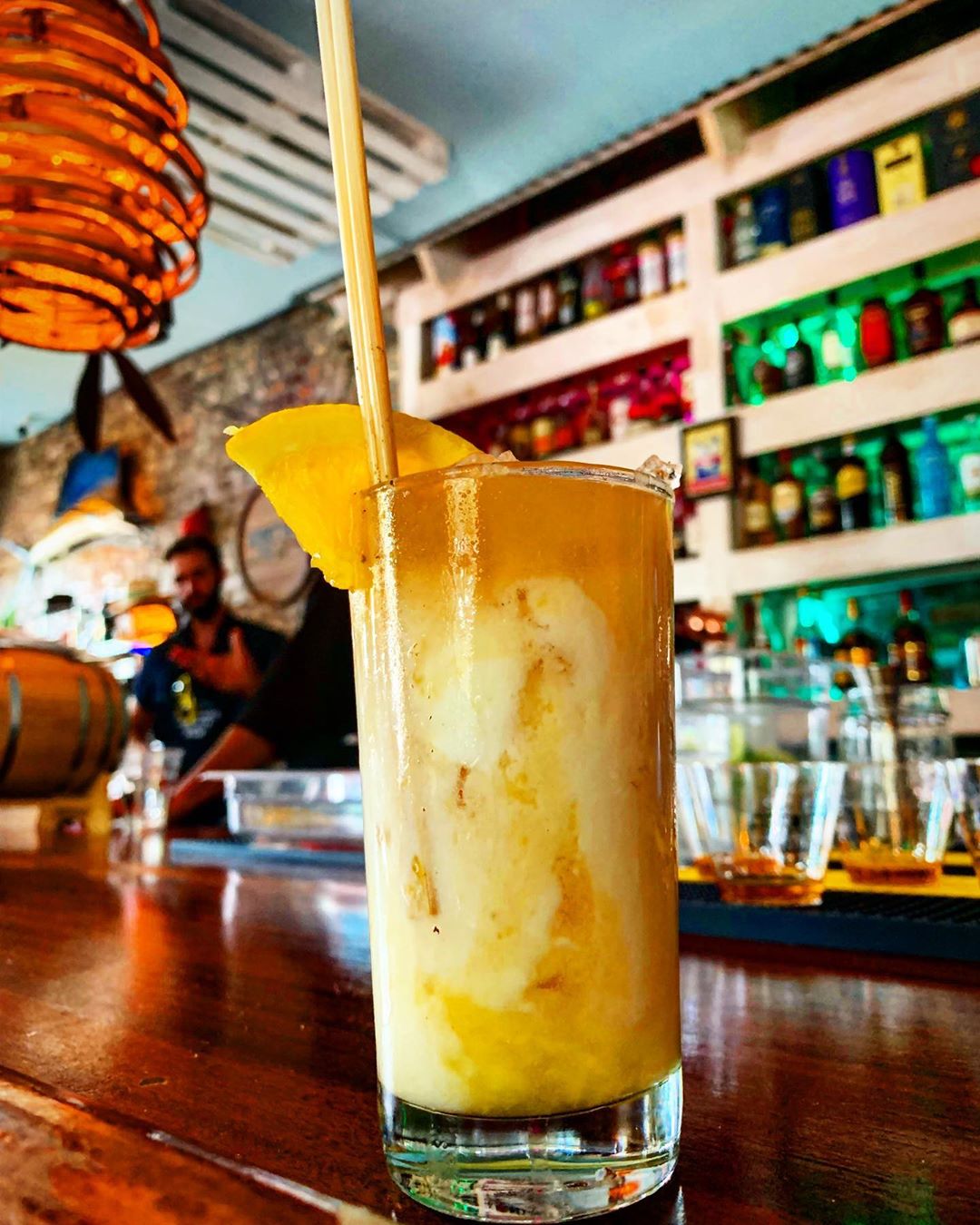


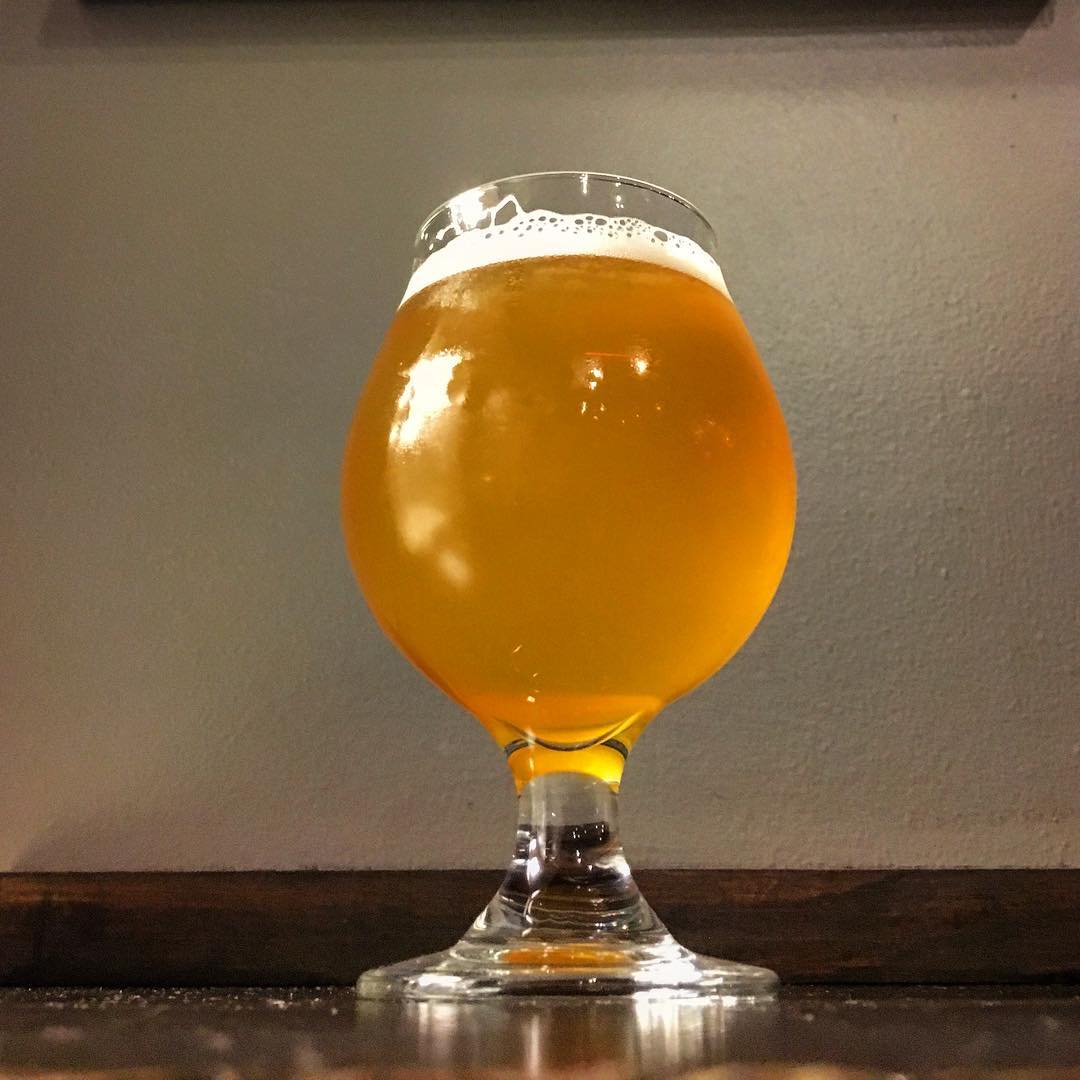

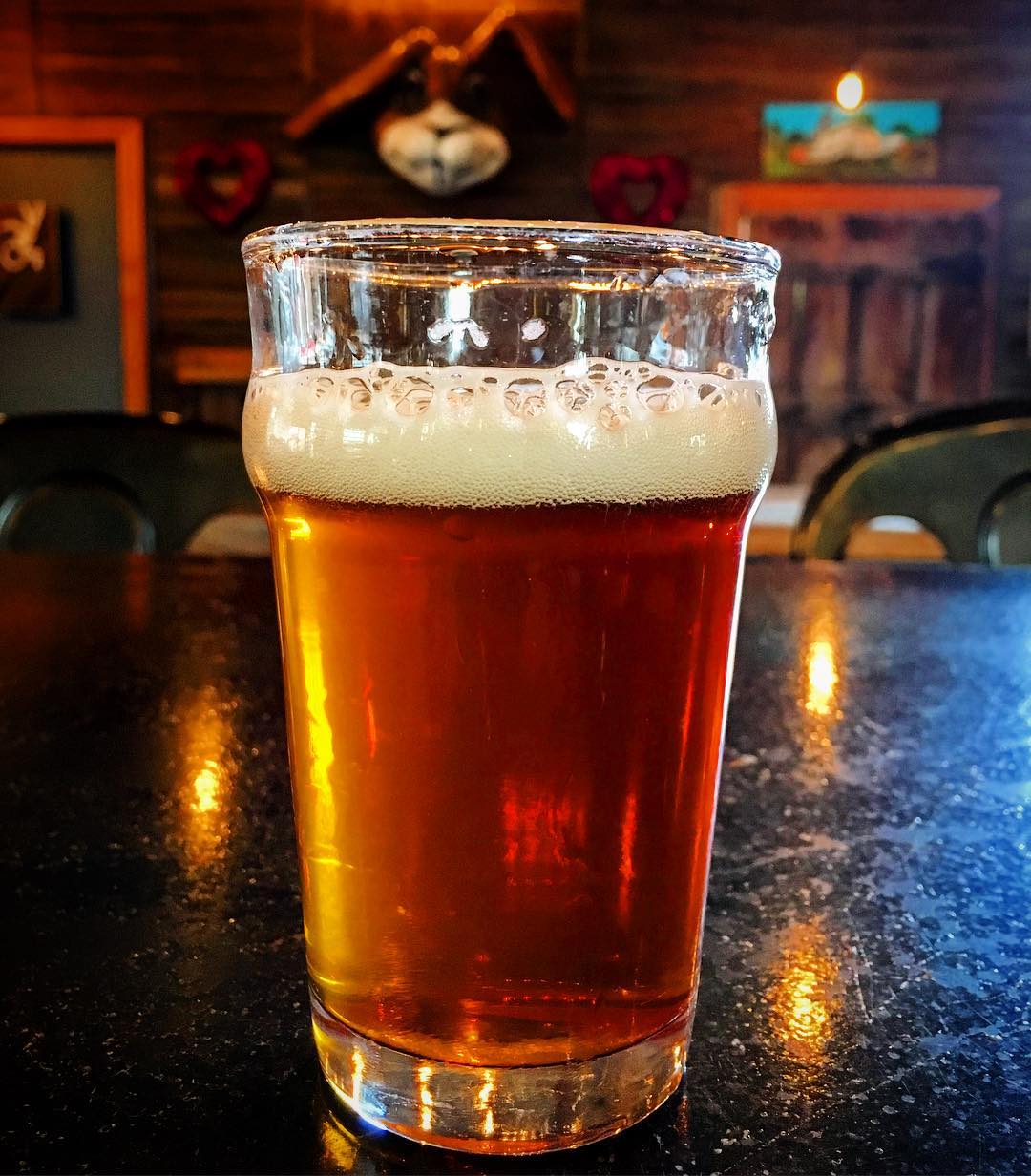
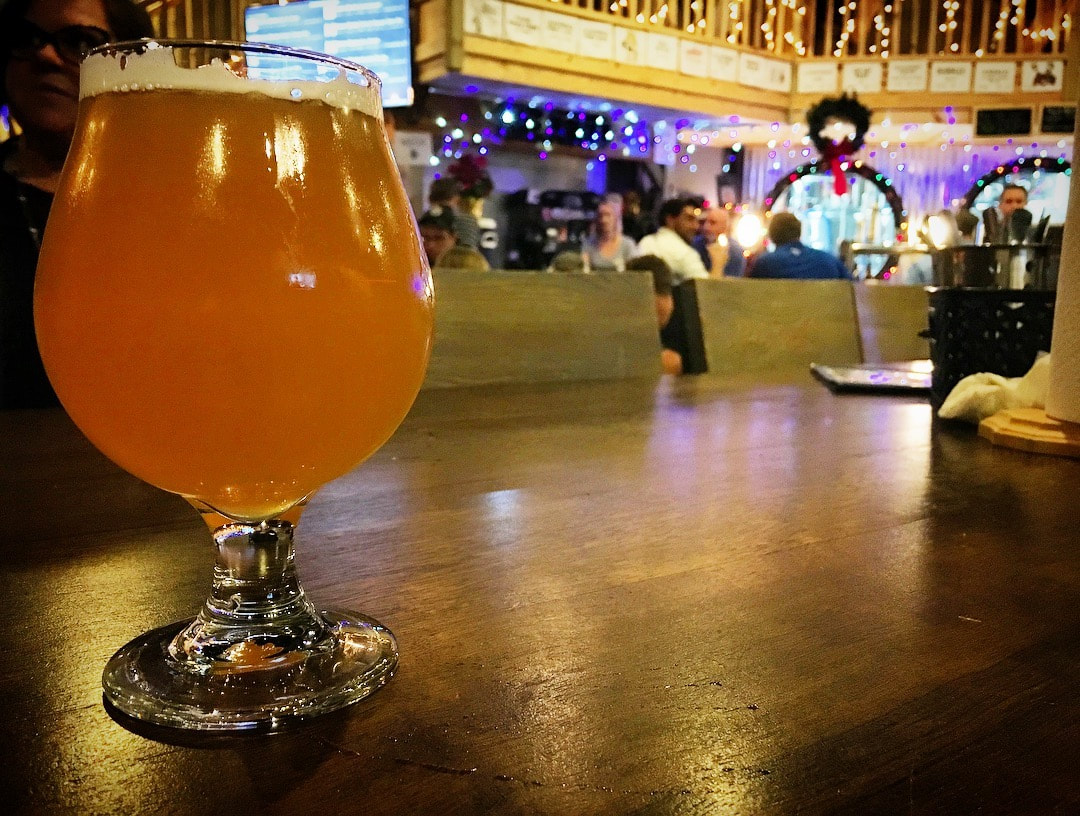

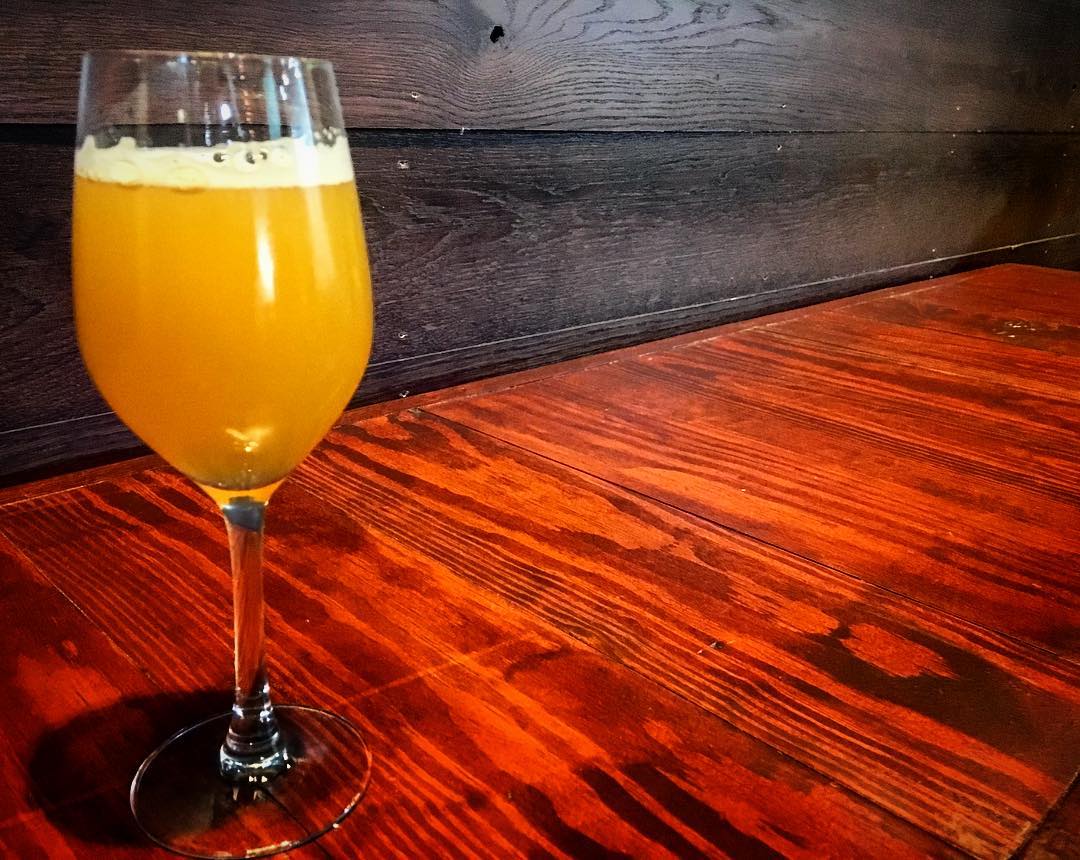
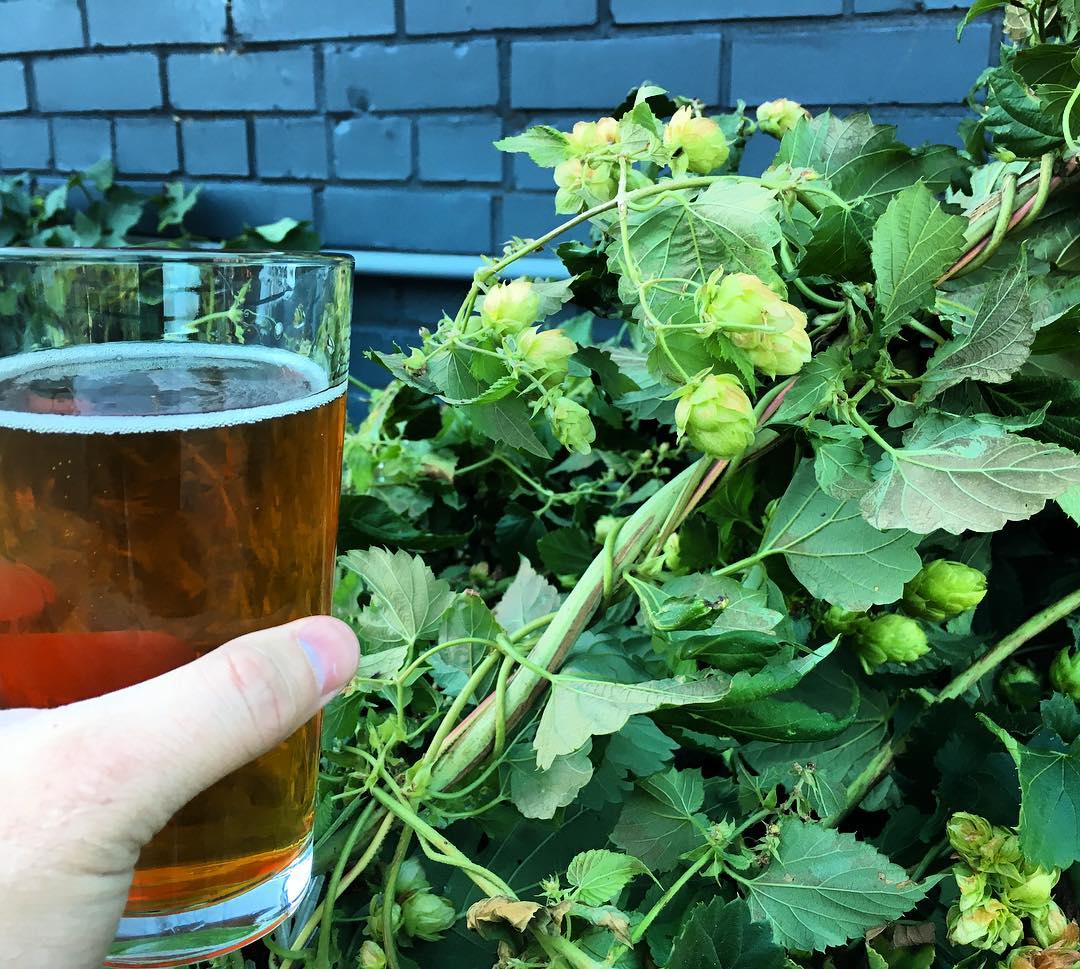

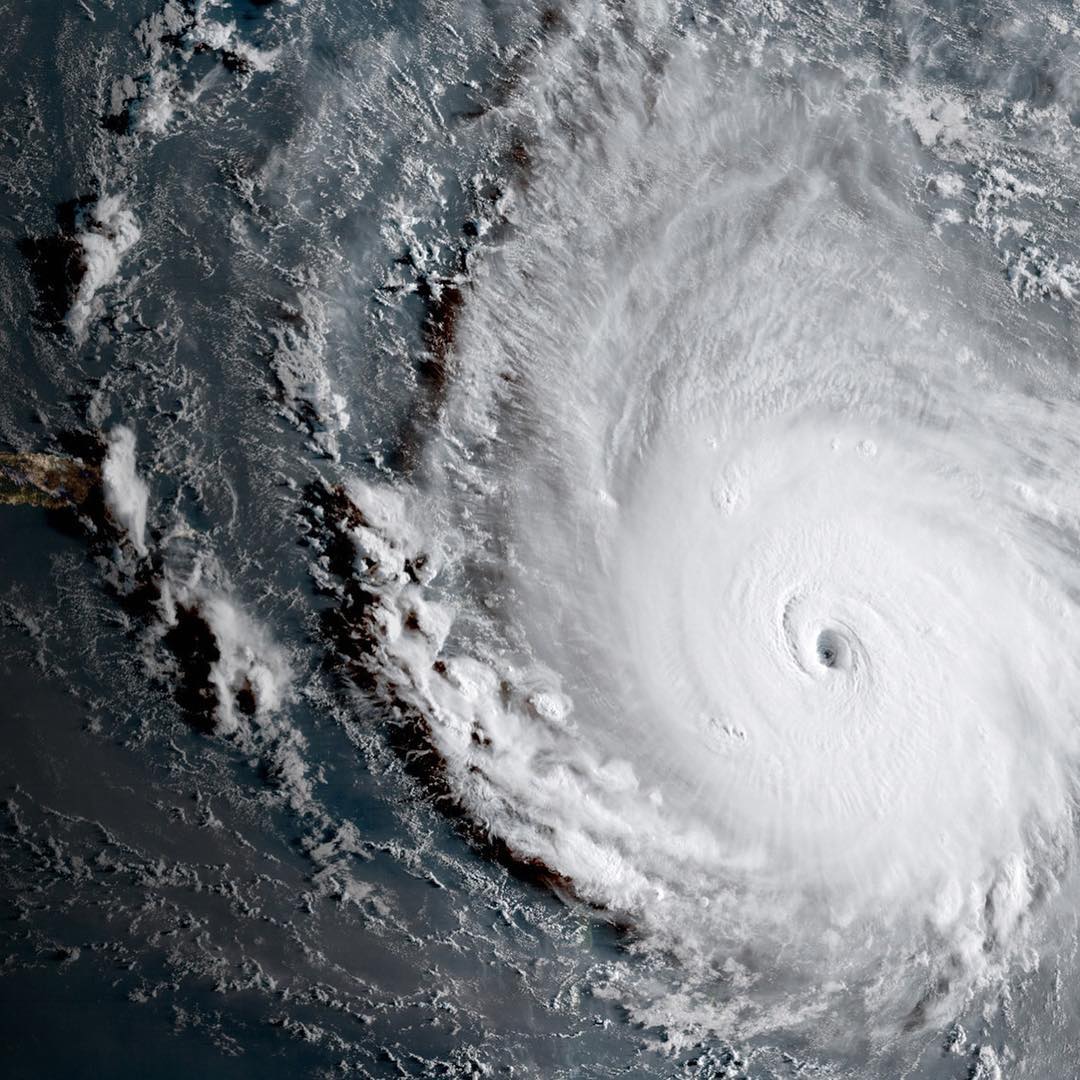
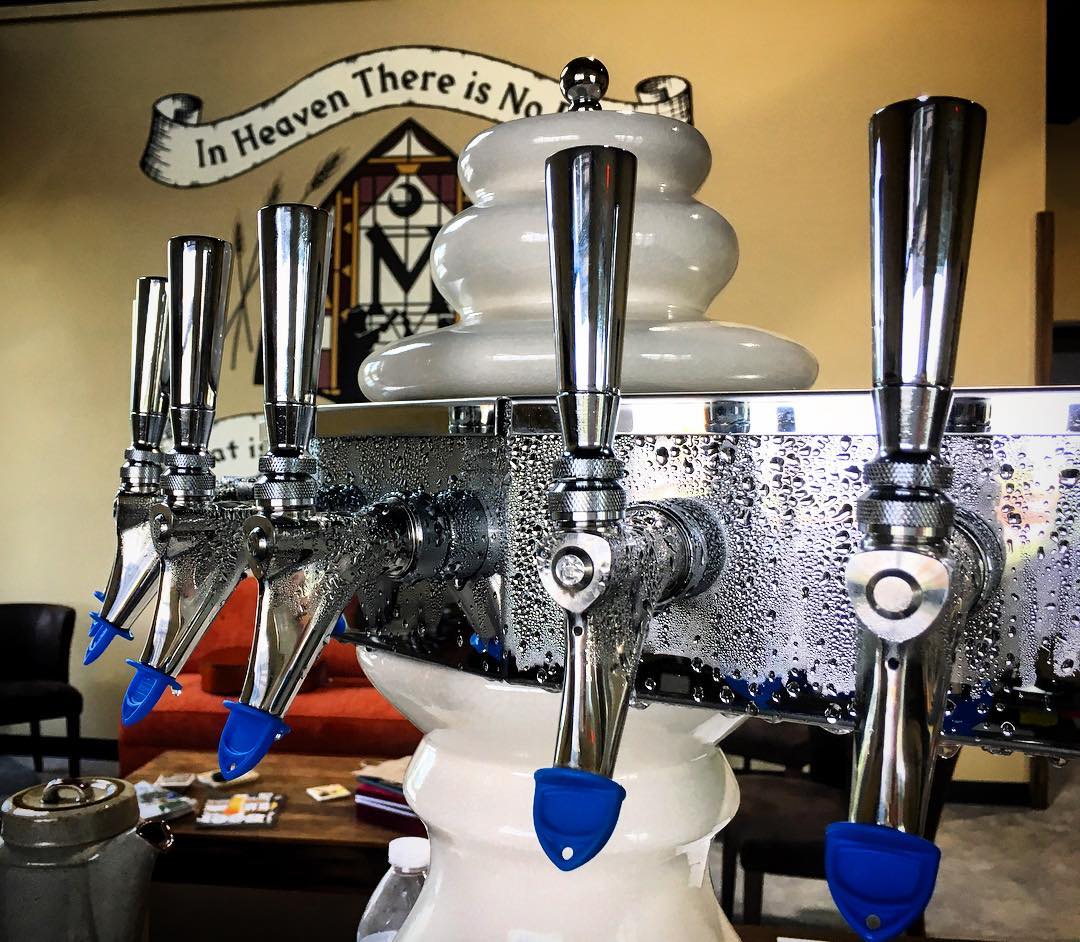

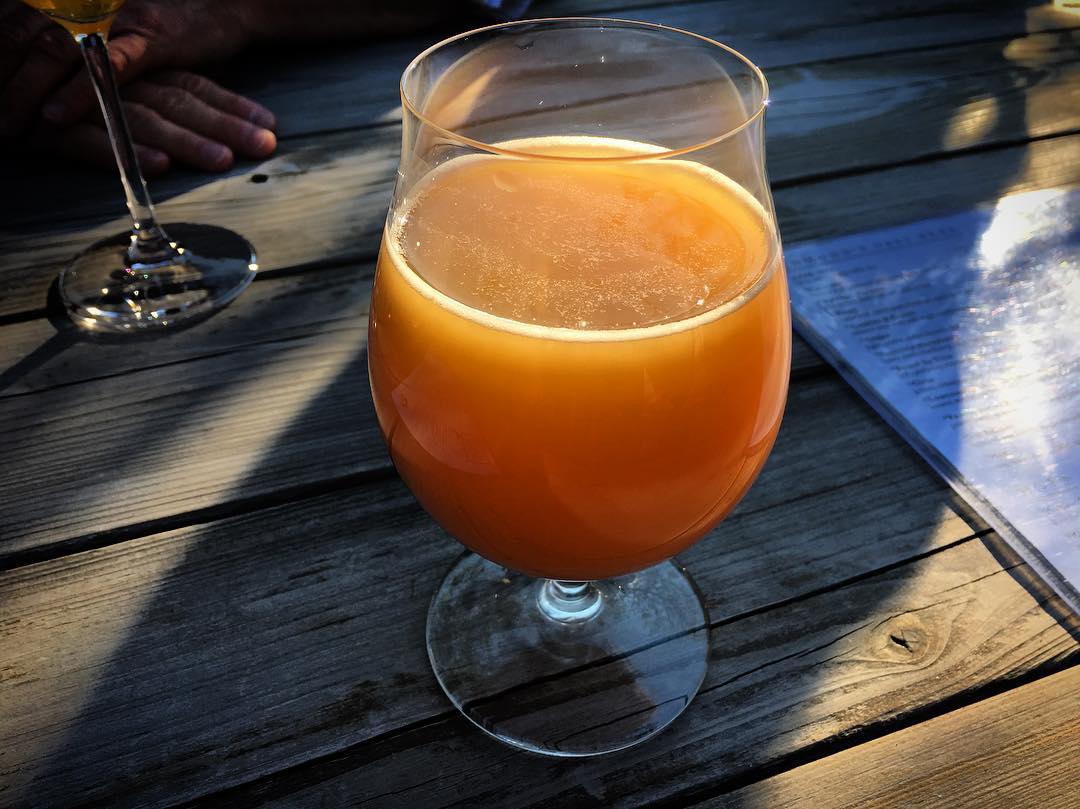
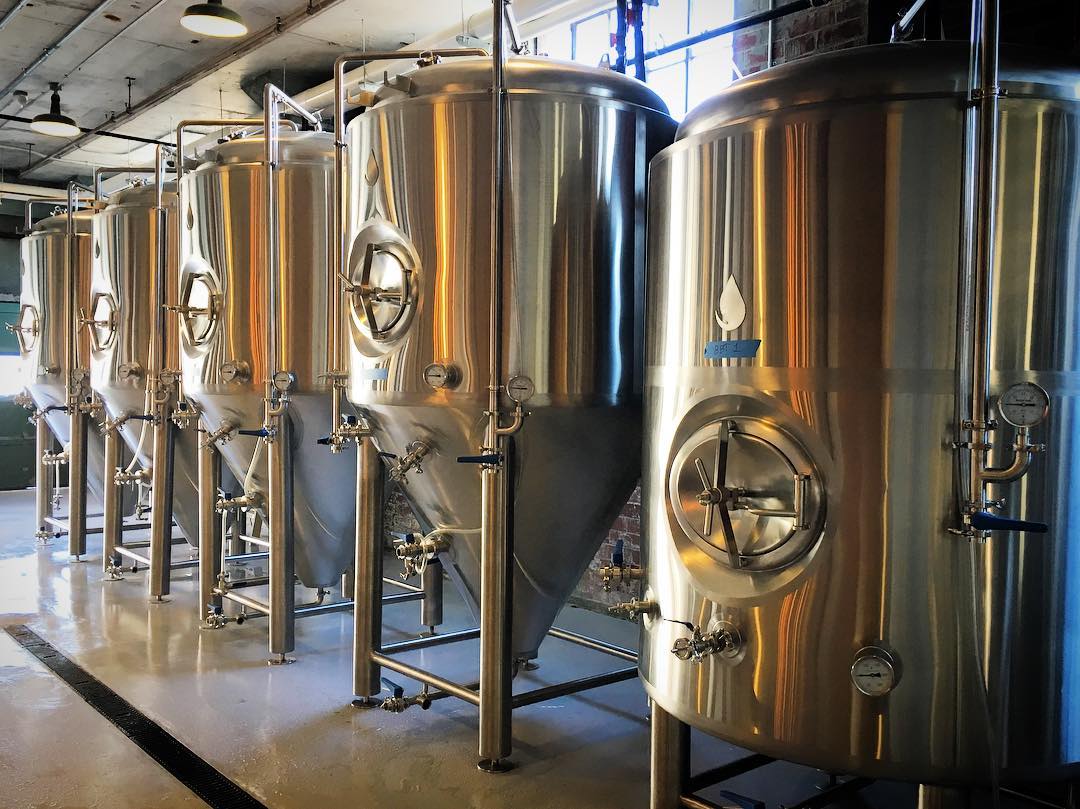
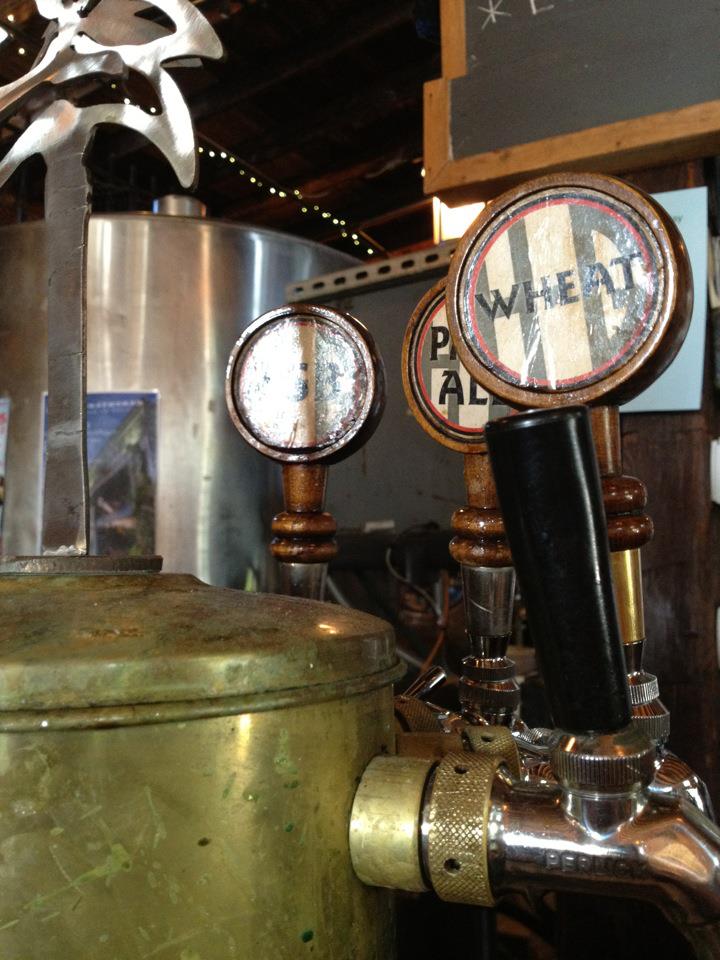
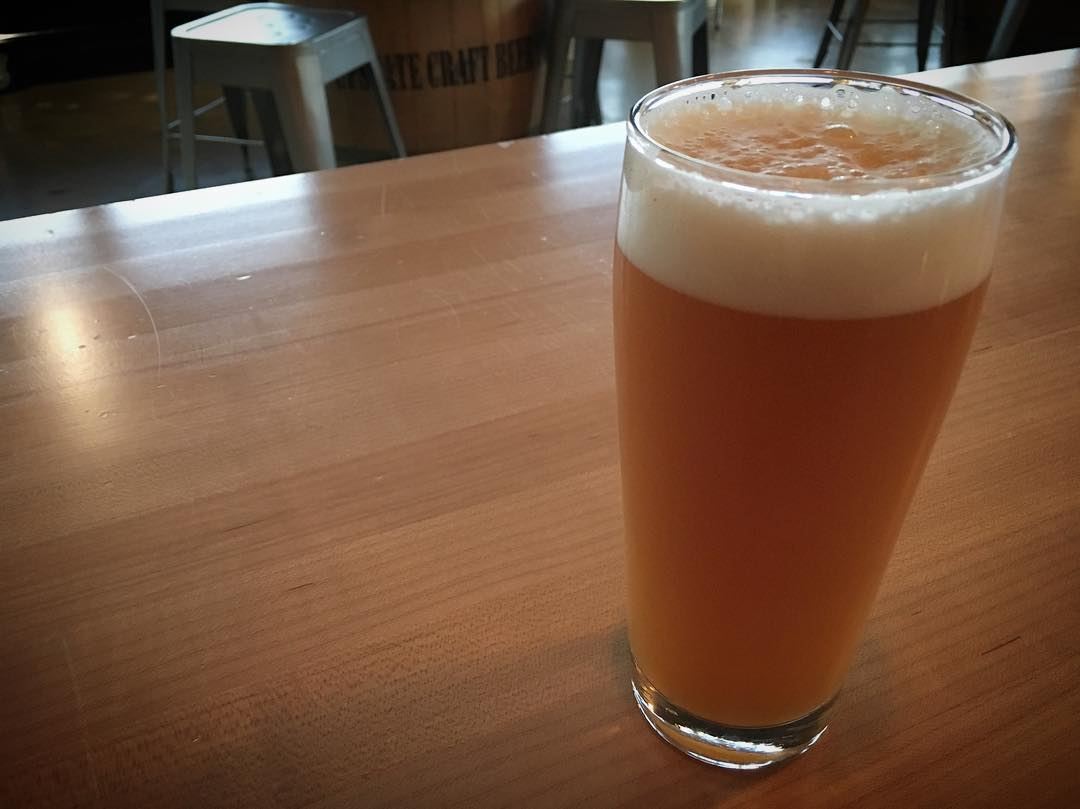
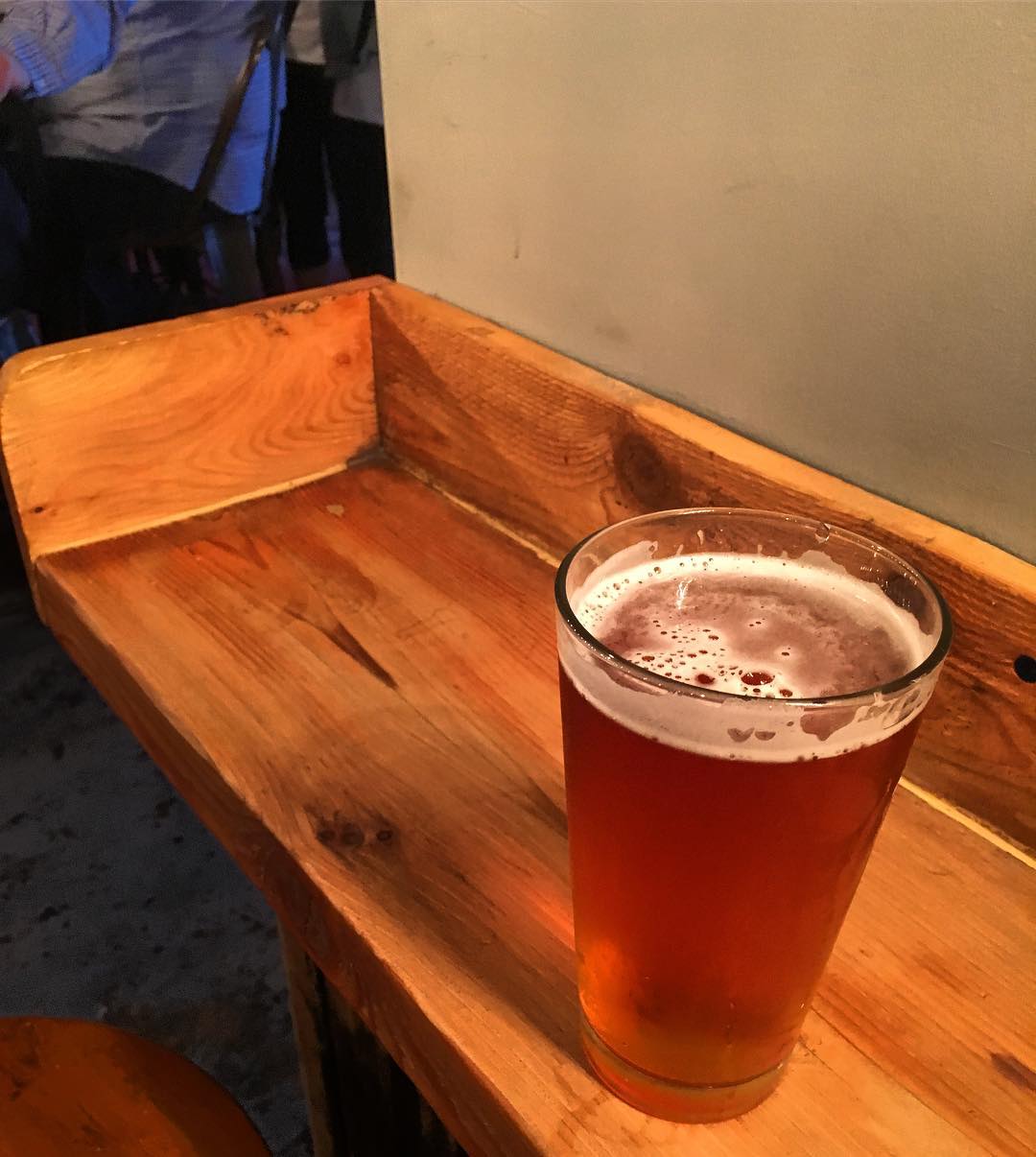
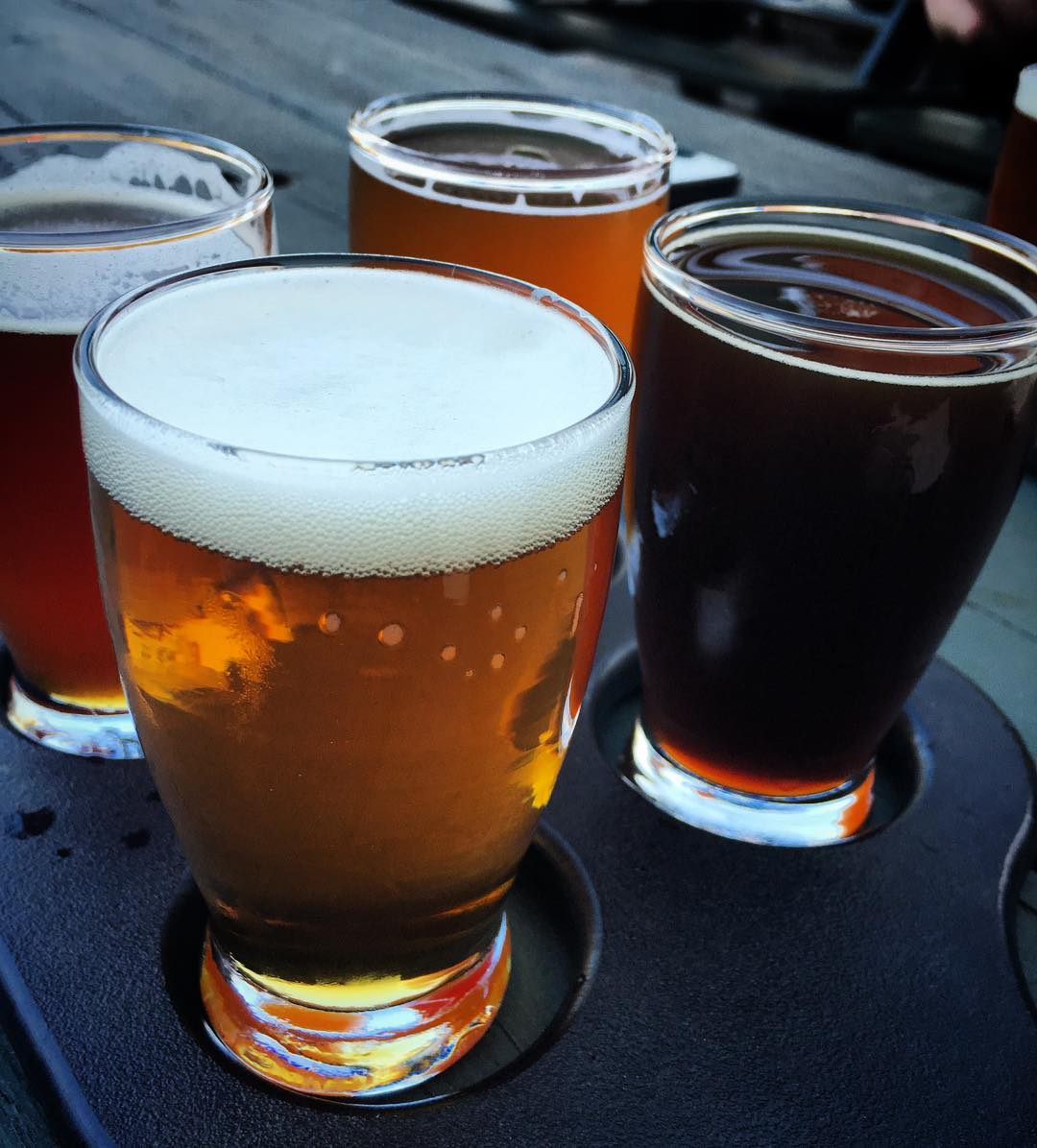


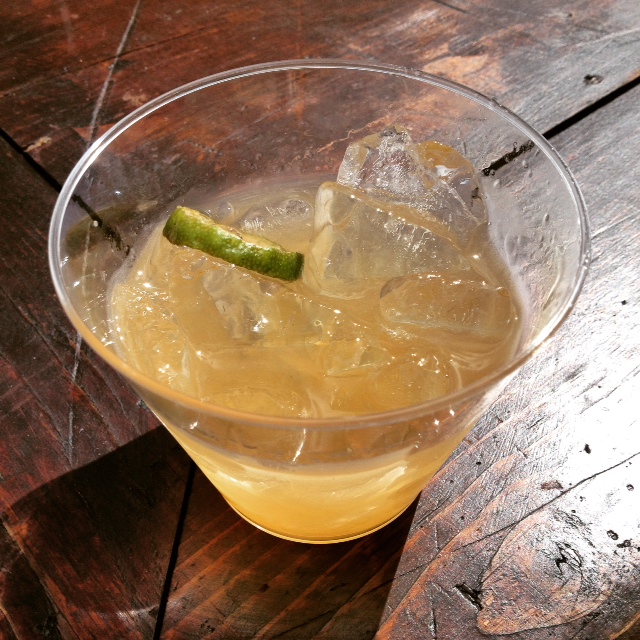
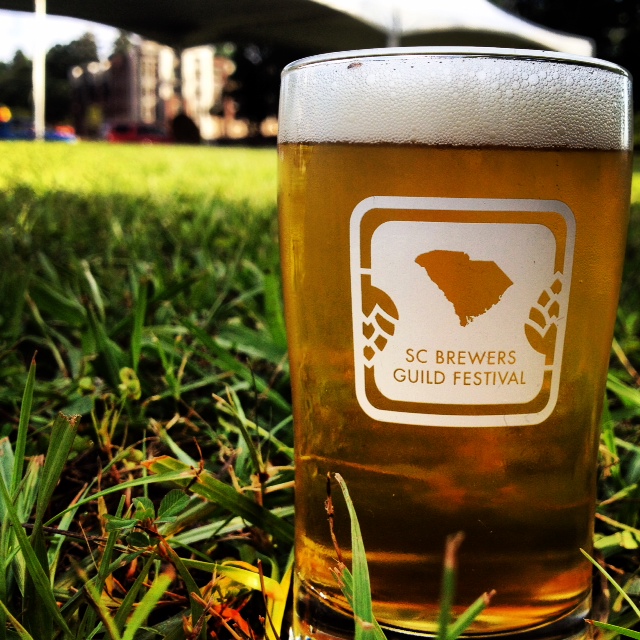

 RSS Feed
RSS Feed